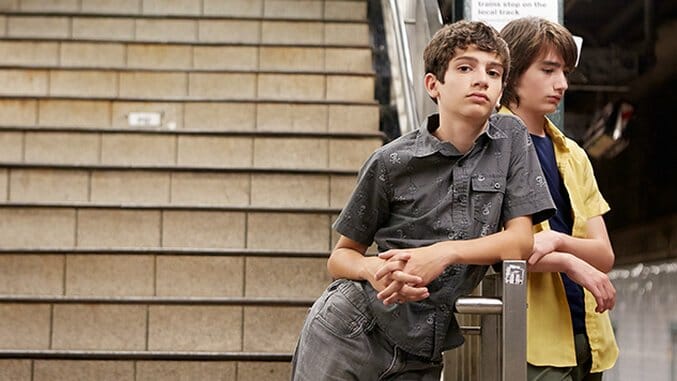Little Men
2016 Sundance Review

In its gentle, compassionate way, the unassuming drama Little Men says as much about self-preservation and mistrust as any hand-wringing, message-based movie. Director and cowriter Ira Sachs uses a simple story about the friendship between two teen boys as a springboard to address the myriad obstacles that keep people from different walks of life from seeing eye-to-eye. Never smug in its observations and always fair to all its characters, Little Men leaves us moved in an offhand, almost accidental manner. The film has all the breeziness of an ordinary day, albeit one with gray clouds on the horizon.
The film’s stars are Greg Kinnear and Jennifer Ehle as Brian and Kathy, a married couple living in New York who has just moved into the Brooklyn home of Brian’s recently passed dad. But the story’s center point is their son Jake (Theo Taplitz), a shy aspiring visual artist applying to a prestigious art academy for high-schoolers. The family’s new home is in the same building as a mom-and-pop boutique run by a Chilean woman named Leonor (Paulina Garcia), who was friends with Brian’s father for many years. Now that his father’s dead, Brian needs to think about raising the rent on her store, something his father hadn’t done in decades.
-

-

-

-

-

-

-

-

-

-

-

-

-

-

-

-

-

-

-

-

-

-

-

-

-

-

-

-

-

-

-

-

-

-

-

-

-

-

-

-








































